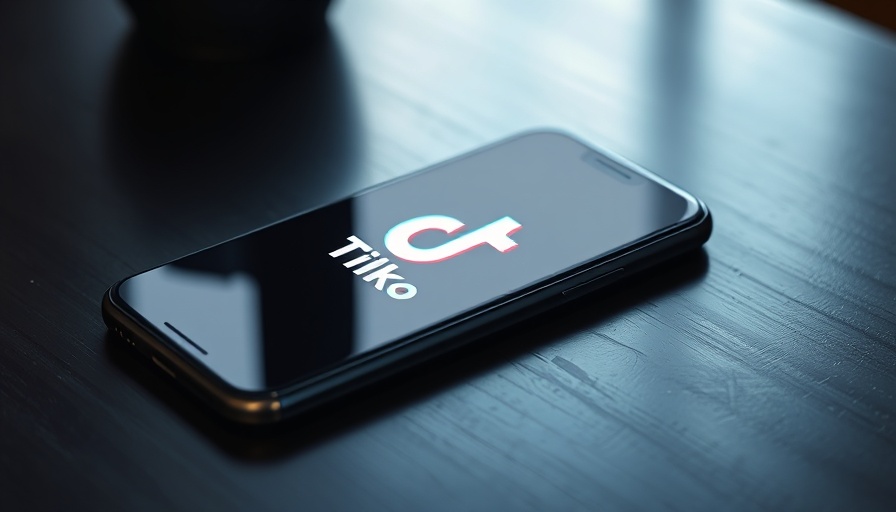
Breaking News: TikTok Shuts Down in the U.S. Amid Regulatory Pressure
This past Saturday, TikTok announced a temporary shutdown of its U.S. operations, complying with a new law demanding that the app's parent company, Bytedance, divest its interests by a looming deadline. As of now, American users face a notification indicating that the app will become unavailable due to these sweeping legal changes taken to ensure national security. This reflects a growing sentiment among regulators who fear data security risks posed by foreign technology companies.
The Implications for Competitors: A Shift in the Digital Landscape
TikTok’s departure is not just a blow to the platform itself; it opens the door for other tech giants. Companies such as Meta Platforms and Snap may stand to gain the attention of users who typically flock to TikTok for creative short-videos. As these services vie for increased market share, businesses should consider how this shake-up in the social media realm could impact their marketing strategies and consumer engagement. The competitive landscape is shifting, and businesses need to be aware of the changing dynamics.
Trump's Pledge: Curiosity Over Continued Access
Amid this backdrop, President-elect Donald Trump suggested he would likely enact a 90-day reprieve once he’s in office. While this announcement raises hopes for continued access to TikTok, it also underscores the complexities within governmental regulation of tech platforms. This pending decision may not only affect TikTok but can also set a precedent for how future administrations may handle similar cases regarding tech companies. CEOs and operators should keep their fingers on the pulse of policy changes, as they could have far-reaching effects on operational strategies across various sectors.
Understanding the Legal Landscape: How It Affects Big Tech
The unanimous decision by the Supreme Court to uphold the TikTok ban signals a critical moment in U.S. tech policy. Affected corporations like Oracle and Amazon, who provide resources for TikTok, face significant fines should they facilitate access. The law that targets TikTok also extends to other tech firms, suggesting a potential ripple effect across the industry. Business leaders must ask the tough questions about their own data practices and security protocols; understanding these legislative measures will be critical for compliance and sustainable growth.
What's Next for TikTok and the Digital Economy?
The uncertainty surrounding TikTok's fate raises key questions about the future of social media and user engagement in the digital age. It's clear that both tech giants and budding startups must reevaluate their strategies in light of this unexpected turn of events. Stakeholders should prepare for agile shifts to adapt to potentially the permanent absence of TikTok. Companies must explore new avenues of growth while keeping an eye on regulatory frameworks to avoid being blindsided by similar challenges.
Engaging with Emerging Trends: What Businesses Should Consider
As this situation unfolds, business owners will benefit from engaging with evolving digital engagement trends. Social media strategies that emphasize adaptability and diversification will become essential. The manner in which brands position themselves will affect not only their market reach but also their consumer trust levels. Are you prepared to pivot if necessary or to capitalize on opportunities presented by an unexpected change in the market landscape? Business leaders should reflect on their operational strategies and equip themselves with the readiness required to adapt swiftly.
Conclusion: Be Informed and Proactive
TikTok's temporary exit from the U.S. scene is more than just a headline—it's a challenge that prompts discussions about technology, security, and the future of digital engagement. As regulatory pressures increase and competition evolves, business leaders and CEOs must remain informed and proactive to navigate their organizations in these turbulent waters.



Write A Comment